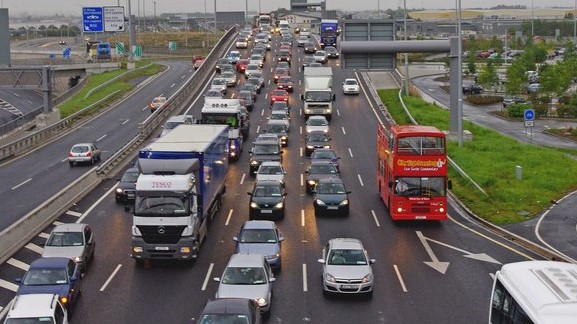5,000 deaths in Europe linked to ‘Dieselgate’ per year, new study reveals
September 18th, 2017
Emissions from diesel cars rigged to appear eco-friendly may be the cause of 5,000 premature deaths annually across Europe, a study published today has revealed.
The new study, published in Environmental Research Letters, found that half of the estimated annual 10,000 deaths linked to pollution from light-duty diesel vehicles across Europe would have been avoided if real-world nitrogen oxides emissions matched lab readings.
The 2015 ‘Dieselgate’ scandal revealed that Volkswagen and other car companies falsified emissions data to conceal that their diesel vehicles failed to comply with regulations.
Health Impact
425,000 premature deaths are linked to poor air pollution in the EU, Norway, and Switzerland, 90 per cent of which are caused by respiratory and cardiovascular diseases related to exposure to fine particulate matter. The European Environmental Agency estimates that over 70,000 European citizens die from poor air quality caused by high levels of nitrogen dioxide in cities each year.
A study in the journal Nature earlier this year found that “excess” emissions from diesel vehicles were associated with 38,000 “premature” deaths across the world in 2015. A Spanish study of over 2,500 school children published last month also t showed that traffic-related air pollution in cities can hinder the brain development of children. The study, which is part of the EU-funded BREATHE project, found that higher concentrations of traffic-related airborne pollutants reaching classrooms negatively impacted children’s performance.

Diesel Trumps Petrol
A separate report also published today from one of Europe’s leading transport NGOs found that diesel cars also emit more greenhouse gas emissions than petrol cars.
The report by the Brussels-based Transport & Environment (T&E) shows that diesel cars emit 3.65 tonnes of CO2 more than a petrol equivalent over the vehicle’s lifetime. This is due in large part to the more energy-intensive refining of the diesel fuel, the report finds.
The use of more materials in the production of heavier and more complex diesel engines and higher emissions from biodiesel blended in the diesel fuel are also outlined as key reasons for diesel’s higher emissions.
The analysis “debunks” the idea that diesel cars are needed to meet their climate targets”, according to T&E, despite what “carmakers’ claim” in marketing brochures. According to the report, decades-old “unfair EU Euro emission standards” has allowed diesel cars to emit more NOx than petrol, exacerbated by the use of “obsolete testing” and “ineffective regulatory oversight”.
“Contrary to industry claims, we have learned diesel cars are also worse for the climate than petrol versions and are not needed to meet car co2 targets,” said Julia Poliscanova, T&E’s clean vehicles manager, said. “Europe must now look forward and accelerate the transition to clean, electrified vehicles and consign dirty diesels to museums.”

Rush hour on N7 Copyright: P L Chadwick
EU’s addiction to diesel
Europe accounts for 70 per cent of global sales of diesel cars and vans sold globally, with more than 100 million diesel cars running in Europe. This is twice as many as in the rest of the world, with diesel-powered vehicles now accounting for less than one per cent of new vehicles sold in the US and less than two per cent in China.
Europe’s addiction to diesel is largely fuelled by “distorted national fuel and vehicle taxes”, the report states. Diesel fuel is taxed between 10 per cent and 40 per cent less than petrol in most European countries. This “diesel bonus” cost national budgets almost €32 billion in lost tax revenue in 2016 alone, the report finds.
In Ireland, diesel is charged at 11c less per litre than petrol. The OECD has recommended equalising the rate, while the European Commission has called Ireland’s policy of taxing diesel less than petrol “environmentally unjustified” and encouraged the equalisation of price.
Mr Poliscanova said that it is time to Europe to move on to cleaner electric vehicles now that diesel cars have been exposed as the “dominant cause of toxic nitrogen dioxide across European cities”.
“The legacy of Dieselgate are the 37 million grossly polluting diesel cars still on Europe’s roads. While some of them will be taken off German roads, these dirty cars will soon end up in Central and Eastern Europe choking citizens there,” she added.
“We need concerted and coordinated action EU-wide to ensure these cars stop belching toxic fumes for another 10-15 years. It is time for the carmakers to take responsibility for their clean up and cash out for the local measures to tackle the urban air pollution crisis they have largely caused.”
[x_author title=”About the Author”]







